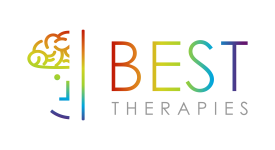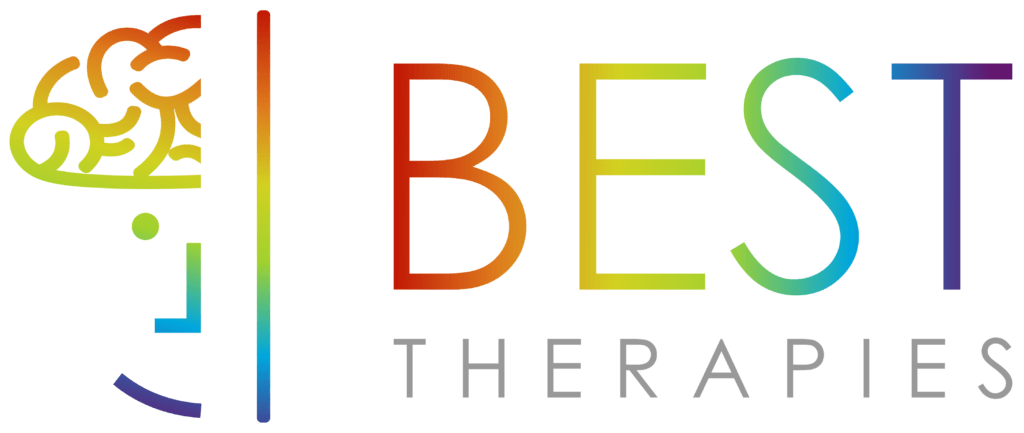
Something that has been missing in many discussions regarding mental health is thinking of wellness as a holistic concept. Being well, to me, involves various systems that work in tandem with one another to help promote living your life to your fullest potential.
One system can’t do all the work to achieve wellness. The systems must work together to create wellness.
Some of the domains I’m about to outline promote wellness in relationships with others. Western culture is often about doing it alone. But that’s not the way it has to be, nor is it sustainable.
Part of discovering wellness is in the idea of interdependence. Interdependence can also relate to being in community with one another. We can’t do everything alone, and we shouldn’t have to, from a physical and psychological perspective.
I oftentimes will divide up the concept of holistic wellness into domains. Domains are subjective, so different people may use different labels, but here are a few that I use.
- Purpose/Spirituality: goals, connectedness, forward momentum in life
- Social: close friends and family, larger community
- Work/Volunteer: structured time doing something for society
- Mental Health: therapy, medications, psychiatry, mindfulness
- Physical Health: medical doctors, exercise, eating well
- Hobby/Creativity: creating things, expressing yourself, defining yourself outside of other domains

Interdependence versus Codependency
Depending upon another person can be healthy, within certain dynamics. One thing to consider is the difference between codependency, which has harmful effects, and interdependence, where a dependence still exists, but it is balanced.
The following is a great description of interdependence versus codependency from the Gender and Sexuality Therapy Center:
“Instead of feeling addicted to your partner(s) — interdependence allows you to appreciate one another’s existence. Everyone involved in the relationship dynamic gets to actively choose how they are involved. Interdependence is about moving away from ‘needing’ one another to genuinely choosing one another every day. Interdependence values the emotional intimacy you share with others while also maintaining a firm sense of self. This allows more space to be vulnerable and honest about your desires, boundaries, and needs as they shift over time. In codependent relationships, there is a reliance on one partner ‘needing’ the other which creates a sense of stagnancy. Interdependent relationships, on the other hand, allow room for growth and change without feeling threatened.”
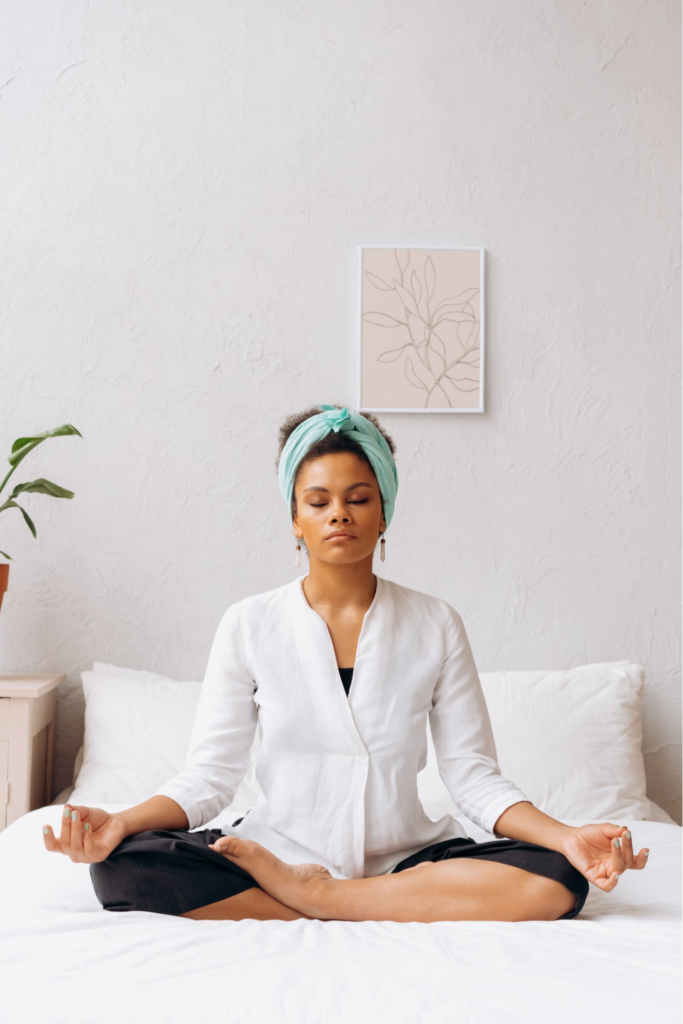
Purpose/Spirituality
When I started using this concept, I found that it can be a hard domain for non-religious people, so it was hard to frame in a way that felt inclusive. When I thought about it more, I realized that some of the same passion spiritual people have towards their belief system can be replicated by feeling a general purpose in life. This could be feeling purposeful at your job, or having goals that help you feel grounded in a sense of purpose.
For example, you could have a creative project you feel inspired by and feeling forward momentum and a sense of purpose to complete it, and perhaps share it with others. You don’t need to subscribe to a religion to feel grounded and purposeful in life–and if you do, and it works for you, that’s cool too!
Some questions you can ask yourself if you’re looking for a sense of purpose:
- Was there a time I remembered feeling more purposeful in life? What was I doing? Can I recreate aspects of that situation now?
- What subjects or things that I talk about do I get really passionate about? Can I begin to do things within those interests?
- What helps me feel safe and grounded? Can I integrate that feeling more into my everyday life?
- Are there activities I can do that help me feel a sense of interconnectedness to the wider world and/or humanity?

Social
Whether we are introverts, extroverts, or somewhere in between, we all need social connections in this world. What it looks like for each of us can be as unique as a handprint.
Some of us have identities that are marginalized, so it may be difficult to have more “traditional” social ties, like to family who may have been the perpetrators of trauma. Many folks make new “families” through friends, people of shared identities, and greater communities.
Here are some questions to ask yourself to see if you can grow your social connections:
- What is the general quality of the social connections you have? If they need improvement, how could you find ways to increase the meaningfulness of your connections?
- How often do you meet people in person to have non-virtual interactions? If you can safely interact with others in-person, think of ways to reconnect with people in a genuine, safe, fun way.
- Would you say if you had a crisis in your life, people in your life would come to help? If not, how can you deepen the trust in relationships you currently have?
- Do you have balanced relationships where you give to them, and they give to you?
- Are there parts of your identity that could help you build additional community in your life?
- Are you utilizing your work/volunteer environment to socialize?
- Are there people you care about that you could reach out to?
- Think of one goal per week to increase your chances of finding social connectedness.
- Think of small, achievable ways to reach out to others to build your sense of social connectedness.

Work/Volunteer
Working or volunteering can help us feel as though we are using a part of ourselves to contribute to society. This can look different for people of different abilities and skills. You may have a chronic illness, so perhaps part-time work or volunteering would be a good fit for you to meet this domain. Others may want to start their own businesses and take charge with their own vision, taking up a larger amount of waking hours.
Think of these questions to improve your work domain:
- Do you feel appreciated at work?
- Are you using a part of yourself that you like at work?
- Do you feel that your boss(es) respect you?
- Do you feel that you are a part of something larger than yourself?
- Do you feel that you are making change in the world?
- If you are unhappy at your job, consider seeing a career counselor, learning new skills, exploring different parts of yourself, shadowing, ramping up your hobby, and/or apply for additional jobs. Take it step by step.
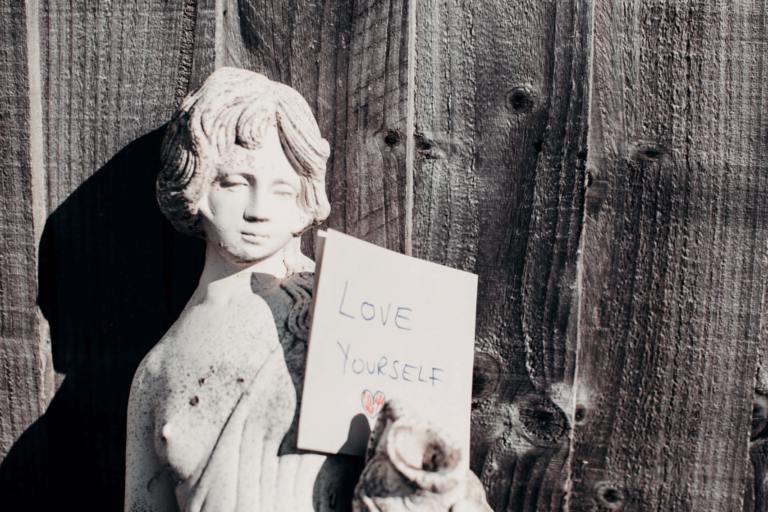
Mental Health
One of the important reminders in holistic wellness is that mental health is not the only domain. All the other domains impact mental health and vice versa. No matter where your mental health stands, taking care of your mind is crucially important to be able to face adversity in life with resilience.
Some ways to tell if your mental health is suffering is to consider if you are experiencing any symptoms. Here are some things to consider, and if you are experiencing some of these, you may consider reaching out for help.
- Over/under eating
- Over/under sleeping
- Physical pain that seems to not have a direct cause
- Inflammation
- Anger, anxiety, or sadness that seems to come out of nowhere
- Any recent major loss, change or life stressor
- Digestive issues that seem to not have a cause
- Headaches that seem to not have a cause
- Excessive sweating, heart palpitations, dizziness, or numbness may be coming from anxiety and/or trauma
- Disassociation or depersonalization
- Hypervigilance (always feeling on edge, in the fight-flight-or-freeze state)
If you are struggling with mental health, consider reaching out to one of our therapists to see if we can help.
Here are some questions to help gauge where you are at in your mental health domain if you are suffering from mental health struggles:
- Are you learning new ways to manage your mental illness and actively applying them to your life?
- Do you have a psychiatrist and/or therapist who you are happy with? If not, consider utilizing Able Psychiatry by clicking here and/or Best Therapies by clicking here.
- Do you have a pharmacy to get your prescriptions? Are you able to refill your medications on time?
- Have you been ignoring addressing a decline in mental health? If so, consider reaching out for help.
Here are some questions for everyone, with or without major mental health struggles:
- Consider the mindful exercise of acknowledging, compassion, and act. This could look like acknowledging you are feeling sad, showing compassion towards yourself for feeling sad, and deciding to do something such as go for a walk to help process the sadness. The process of acknowledging and working through emotions can help us get unstuck from them, or to not allow them to build up and overwhelm us.
- When you do something that you label as “wrong” or make a mistake, are you being compassionate towards yourself?
- Are you regulating your sleep, eating, and exercise routines to better your mental state? See physical domain.
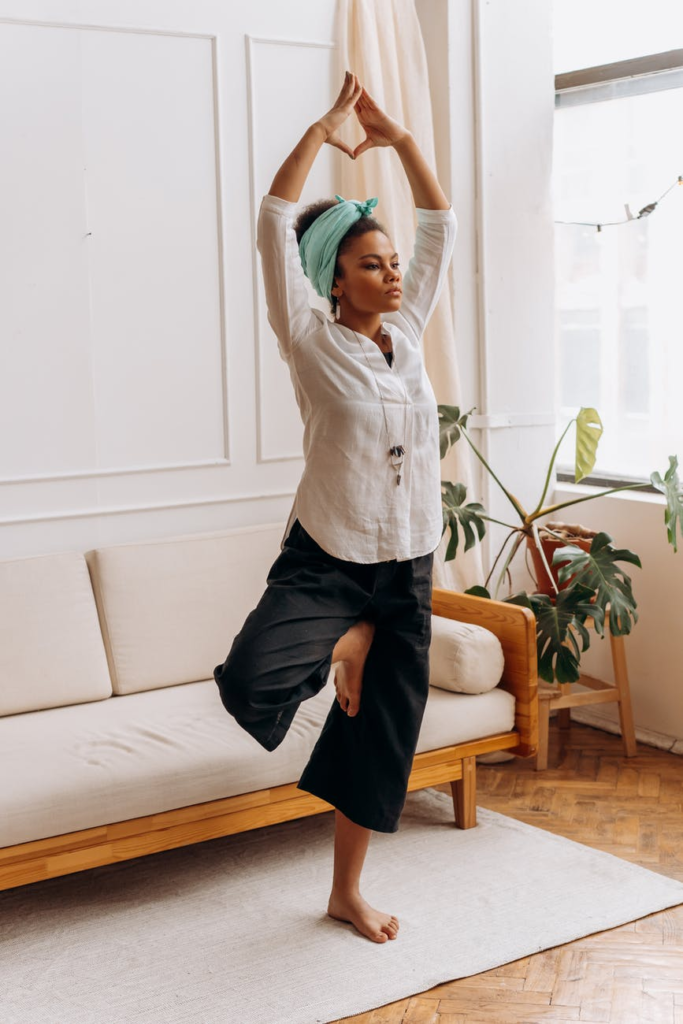
Physical Health
Many of us know that there is a mind-body connection. Our emotions are closely tied to our nervous system, which runs throughout our entire body. Chronic inflammation and pain can be related to persistent levels of stress. Our body can enter a persistent fight-flight-or-freeze state if we are under constant stress. If we actively work on reducing our felt level of stress in our bodies, it can help other domains considerably, particularly mental health.
Here are some questions to help improve your physical health:
- Are you relating to your body with respect and compassion?
- Are your current eating habits based on shame or starvation? If you are trying to become healthier in whatever health looks like for you, learn how to do so while nourishing your body, rather than punishing it.
- What are foods and activities that bring you energy and groundedness?
- What are physical activities you can engage in that give you a healthy amount of challenge and stress release?
- Are you engaging in recreational drug usage and/or drinking alcohol? Are there ways you could cut back on both or either?
- Are you meditating or engaging in mindfulness often enough to reduce your body’s level of stress?
- Check out the app insight timer for additional meditations.
- Do you know and/or practice any basic breathing exercises that you can utilize anywhere to help with stress?
- Try the breathing exercise where you inhale the shortest, hold the second shortest, and exhale the longest amount you can. One example of the count could be inhale for 4, hold for 6, exhale for 8. Repeat for at least three minutes.

Hobby/Creativity
I believe that everyone is creative in some way, and that we all have the potential to find joy in creating things. As children many of us are encouraged to be creative without judgement, and as we continue to grow, we often judge ourselves out of being creative. Having a hobby or doing something creative should be free of judgement.
If you would like to develop your sense of creativity, I would recommend Julia Cameron’s book The Artist’s Way. You can buy it from Women and Children First.
In the Nagoski sisters’ book on burnout (Burnout: The Secret to Unlocking the Stress Cycle) they talk about doing activities to utilize a different part of your brain than you do during social and work activities can help reduce burnout.
An easy way to utilize a different part of your brain is to do something creative, particularly if your job doesn’t utilize your creativity fully. If you do have a creative job, try doing something creative within a different skill set.
How to build the hobby/creativity domain:
- Are you engaging in activities that could be described as “fun” at least once a week?
- If you are lacking play in your life? What are activities that help you lower your stress?
- If you are having trouble thinking of something creative to do, think of creative things you may have done in childhood and how you can incorporate them into your current life.
- When you are engaging in creative acts, are you allowing your judgement to cloud the enjoyment of the activity? If so, think of ways to suspend judgement. Practice compassionate beginner’s mind: enjoying the process of learning without focusing on the outcome.
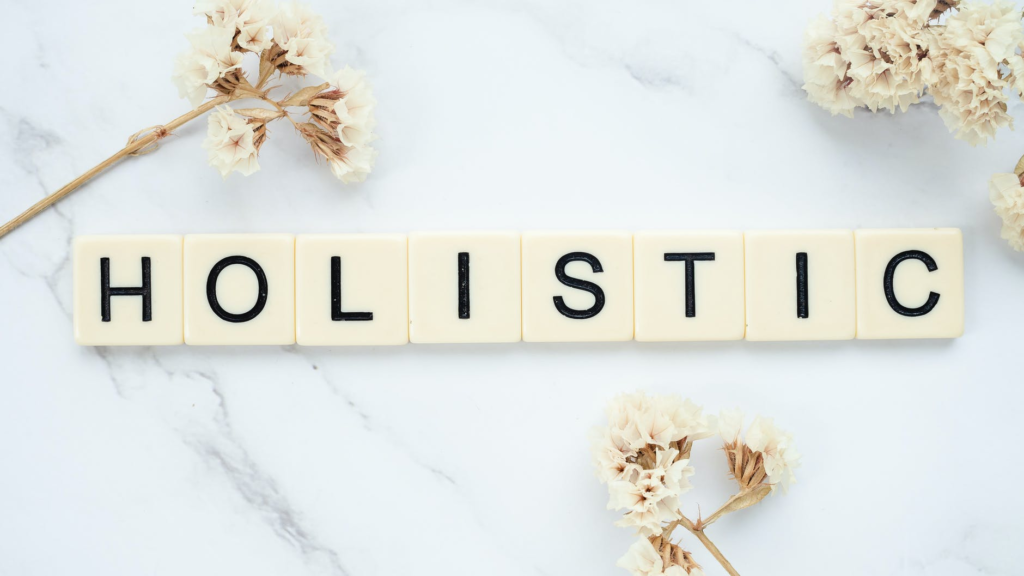
Conclusion
If you’re feeling overwhelmed seeing that you could improve in each domain–don’t worry, that’s normal! Unless we are fully enlightened beings of light, there will always be room for improvement.
If you are overwhelmed by the amount of things you could change, think about the things that are easiest, doable steps that you can accomplish in the next week or so to help you gather the momentum to tackle the bigger problems.
Know that the process is worth all of the work. One great thing about the domains, is when one is going well, that positivity and alignment can help other domains naturally fall into place. Or you can have the energy to make the next domain improve. So know that the first steps sometimes feel the hardest, but eventually the momentum helps you keep going.
The next time you’re feeling down, think about how you could improve one domain to help improve your mood. Or, you can think of the strengths you have in each domain that you can utilize to feel better.
What would you like to hear about from our therapists? What are you looking for guidance with? At Best Therapies, we are committed to trying to help as many people as we can, because folks need it, right now. Write to us, and we will use your thoughts for future blog posts. Be well.
